Earth
Sign up for our newsletter
We summarize the week's scientific breakthroughs every Thursday.
-
 Climate
ClimateAs wildfires worsen, science can help communities avoid destruction
Blazes sparked in wild lands are devastating communities worldwide. The only way to protect them, researchers say, is to re-engineer them.
By Nikk Ogasa -
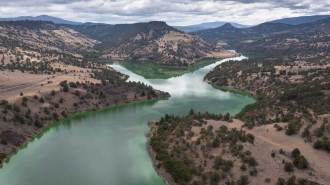 Environment
EnvironmentHow a Yurok family played a key role in the world’s largest dam removal project
In The Water Remembers, Amy Bowers Cordalis shares her family’s account of the Indigenous-led fight to restore the Klamath River in the Pacific Northwest.
By Aina Abell -
 Materials Science
Materials ScienceNew wetsuit designs offer a layer of protection against shark bites
By weaving Kevlar or polyethylene nanofibers into standard neoprene in wetsuits, researchers found ways to limit injury during rare encounters with sharks.
By Carly Kay -
 Climate
ClimateCoral collapse signals Earth’s first climate tipping point
The global die-off of coral reefs signals a critical shift in Earth’s climate system with global environmental consequences along with economic ones.
-
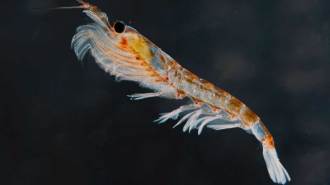 Climate
ClimateAntarctic krill eject more food when it’s contaminated with plastic
Antarctic krill don’t just sequester carbon in their poop; they also make carbon-rich pellets out of leftovers. But microplastics may throw a wrench in the works.
-
 Agriculture
AgricultureA grapevine bacteria may help douse wildfire-tainted wine’s ashy aftertaste
Grape plant bacteria might help mitigate smoke taint in wine by breaking down chemicals that evoke an ashy taste.
By Carly Kay -
 Earth
EarthTwo of Greece’s most dangerous volcanoes share an underground link
Seismic and land deformation data show that Santorini and Kolumbo draw from the same magma source, complicating eruption forecasts.
-
 Earth
EarthRecycled glass could help fend off coastal erosion
Sand made from recycled glass can be mixed with sediment to make a medium for plants to grow in. That can help with coastal restoration projects.
By Jude Coleman -
 Paleontology
PaleontologyCrystallized dino eggs provide a peek into the tumultuous Late Cretaceous
Definitively dating the age of a clutch of fossil dinosaur eggs at a famous site in China may let scientists link eggshell features to environmental shifts at the time.
-
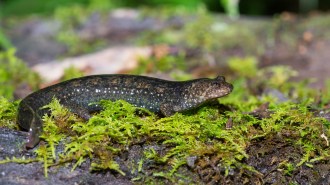 Animals
AnimalsJust like humans, many animals get more aggressive in the heat
From salamanders to monkeys, many species get more violent at warmer temperatures — a trend that may shape their social structures as the world warms.
-
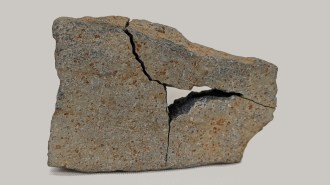 Planetary Science
Planetary ScienceA Mars rock analysis tool proved its mettle on a chance find from Arizona
On Mars, the Perseverance rover found a spotted rock that could bear signs of ancient life. On Earth, a researcher used a lookalike for a dry run.
-
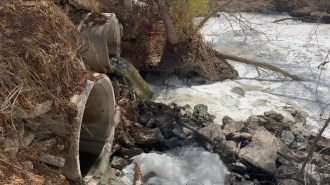 Environment
EnvironmentRiver turbulence can push toxic pollutants into the air
Levels of hydrogen sulfide gas soared near a raging section of the Tijuana River in San Diego, exposing residents to potentially harmful air pollution.